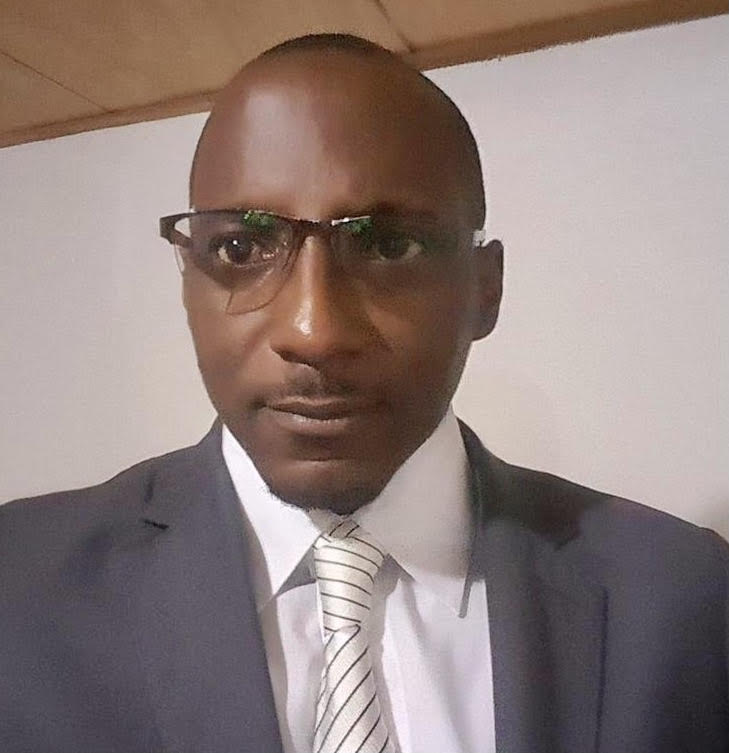As countries around the world began to reckon with the deadly consequences of the Coronavirus and citizens in Cameroon were scrambling to protect themselves, the Ministry of Forest and Wildlife rushed to declare Forest Management Unit 07006 and 07005. Around 130,000 hectares of rainforest – an area more than twice the size of Naibori – were designated for logging overnight.

About 40 Banen communities have been living in and around Ebo forest for many generations. It is the backbone of their culture, the burial site of their ancestors, but also their source of livelihood for generations to come. Their leadership was pleading the state to formalise their customary rights over the land ever since Cameroon became independent. Instead, they were invited to a brief meeting last March, in which they learnt of the intention to trash this forest.
It was a short and declarative meeting, without any room for discussions or substantial consultations. After 60 years of independence, Cameroonians deserve to participate in any plans for repurposing our lands. Does it really matter if a community is being displaced and dispossessed by a French or a Cameroonian fonctionnaire? The substantial notion of justice implies autonomy for communities and individuals and their participation in the shaping of their lives. Justice can never mean a unilateral top-down decision taken over a collective of people.
In this instance, the final decision came also in blatant violation not only of the rights of Banen, but also threatened Ebo forest’s unique biodiversity. Cameroonian were blessed with a forest that is a unique treasure which serves as the second lung of the entire world. When the forest is intact, it stabilises the global climate. When we abuse it with reckless logging, we behave like a heavy smoker that is dooming his own fate.
Our ancestors always treated the forest with respect, just like they taught us to treat ourselves. When the forest is protected, it provides essential medicine, which keeps the most remote communities in good health, as well as is used for cultural practices and provides food for our daily lives. When we trash the forest, science tells us that the chances of more animal borne illnesses spread. Some of the most dreaded health pandemics of our times like Ebola and Covid -19 are thought to be such diseases.
A broad and determined coalition rose up against the decision to log Ebo forest. Banen leaders held protests and advocated as if their lives depended on the cancellation of those logging plans. In many ways, their lives did depend on their success. Environmental NGOs have joined the campaign through an ad-hoc coalition, to which Greenpeace Africa is proud to have contributed.
Therefore the decision to suspend logging plans in Ebo forest, announced just over three months ago, was welcomed by the Banen communities, by Greenpeace Africa and Rainforest Rescue, Global Wildlife Conservation and other NGOs, as well as by the scientific community, most notably by Cameroonian expert Dr. Ekwoge Abwe whose life is devoted to studying and protecting this special forest.
There is agreement among all those who campaign to save Ebo forest that guaranteeing the rights of the Banen people and ensuring them access to their ancestral land is the only viable and moral way to protect it.
Defending their home cannot be done with chainsaws that treat the forest as a single-use resource. Nor can it be done with armed eco-guards that treat any human activity as a threat. Three months after the welcome decision to suspend logging plans at Ebo forest, the way forward remains unclear.
We remain adamant that this decision must be the first step towards recognition of Banen’s rights and forest protection.
We call on the Government of Cameroon to do justice with the Banen communities around Ebo forest – not simply to suspend injustice. Justice means promoting participatory mapping and land-use planning with local communities. We are asking President Biya to intervene and save Ebo forest from industrial logging forever. He can make the Ebo forest a shining example of a community self-managed park.
Land tenure reform must have at its core the full recognition of communities’ customary land rights. International donors and NGOs will need to support these processes with technical expertise and resources – in Ebo forest and across the Congo Basin rainforest, but this can only be achieved if the fundamental dignity and rights of communities are respected.
Ranèce Jovial Ndjeudja is the Greenpeace Africa campaign manager in Cameroon
